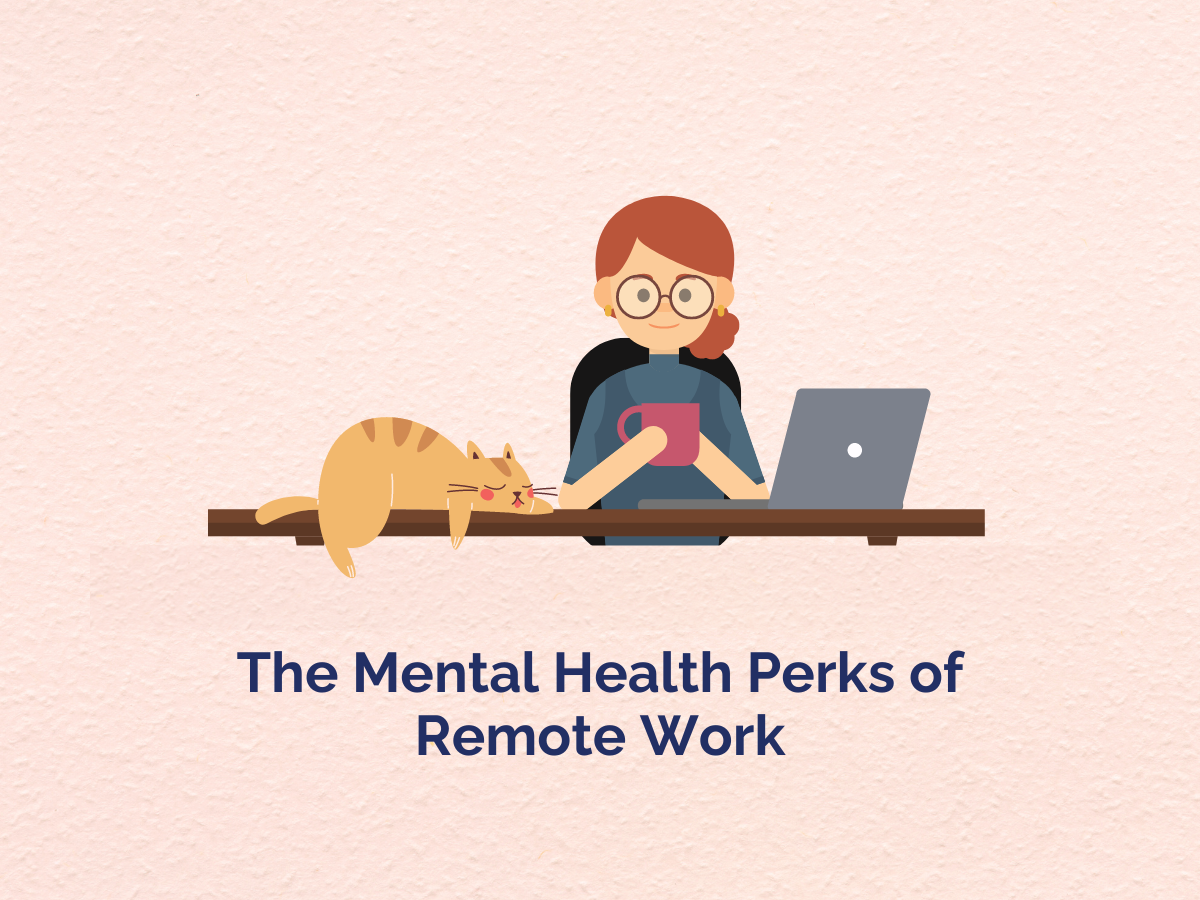Reduce stress, improve sleep, and boost productivity. Check out these mental health perks of remote work.
The traditional office grind can take a toll on mental well-being. Long commutes, packed schedules, and a lack of control over your environment all contribute to stress and anxiety. Studies show that working from home offers a surprising range of benefits for your mental well-being.
Here are just a few:
Reduced Stress: No more battling rush hour traffic or the stress of office gossip. Remote work lets people create a workspace that suits them, boosting focus and creativity.
Improved Sleep: Ditching the commute allows you to sleep in a bit longer or unwind before starting your day. This can significantly improve sleep quality, leading to increased focus and energy throughout the workday.
Better Work-Life Balance: Remote work often provides more flexibility to manage your schedule. You can prioritize personal errands, exercise routines, or even family time during the day, leading to less stress and a more fulfilling life.
Increased Autonomy: Working from home often gives you more control over your work environment and schedule. This sense of autonomy empowers you and reduces feelings of being micromanaged, boosting your overall satisfaction.
Reduced Risk of Burnout: By controlling your environment and prioritizing well-being, remote work can prevent burnout, a state of exhaustion and cynicism experienced by many office workers.
Bonus Tip: While working from home offers amazing benefits, it’s important to create a dedicated workspace and maintain a healthy work-life boundary. This helps you stay focused while enjoying the flexibility of remote work.
Is Working from Home Right for You?
While remote work offers numerous benefits, it’s important to acknowledge that it’s not suitable for everyone. Some individuals thrive in a structured office environment and may find it challenging to stay focused and motivated while working from home.
Consider these factors before making the switch:
- Need for social interaction: If you thrive on in-person collaboration and enjoy office camaraderie, remote work might not be the best fit.
- Self-discipline: Remote work requires strong self-discipline to manage your time effectively and stay focused on tasks.
- Work environment: Ensure you have a dedicated workspace that minimizes distractions and promotes productivity.
If you’re considering remote work, it’s essential to assess your personal preferences and work style to determine if it’s the right choice for you.
